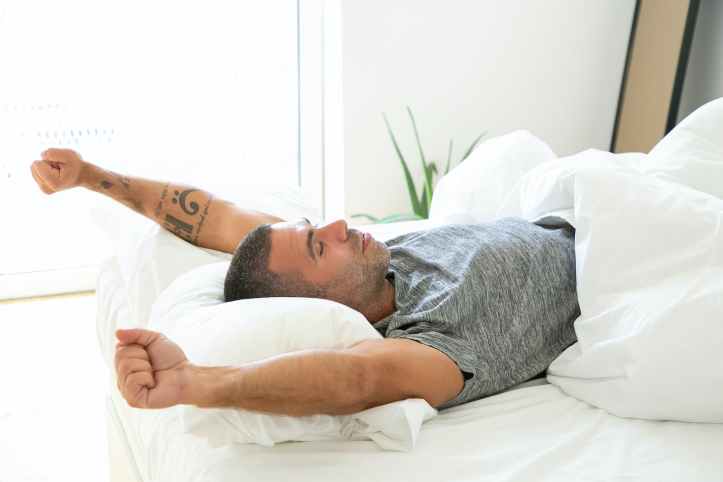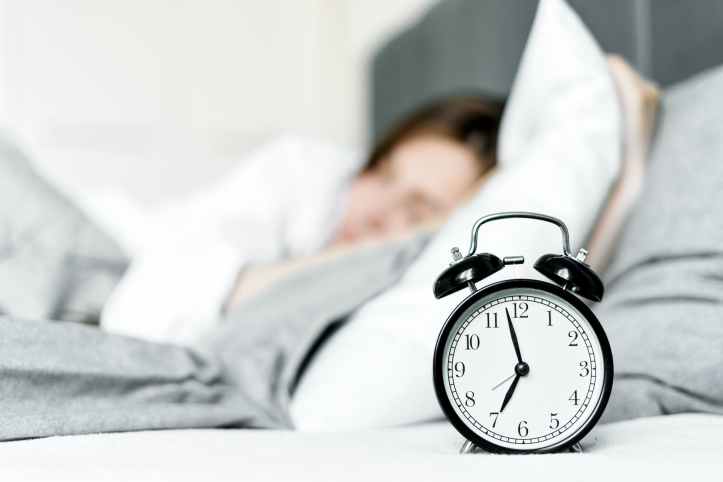Sleep is an essential part of our lives, and getting a good night’s rest is crucial for our overall health and well-being. Yet, many of us struggle to get the recommended 7-8 hours of sleep each night. In fact, according to the National Sleep Foundation, over 40 million Americans suffer from chronic sleep disorders, and an additional 20 million experience occasional sleep problems. In this article, we will explore the science of sleep, its benefits, and how to improve the quality of your sleep.
The Science of Sleep Podcast : You can use Audio in case if you are struggling to focus or if you prefer audio over reading. Playing Podcast along with reading will help you will faster , focused and intense reading!

The Importance of Sleep
Sleep plays a critical role in our physical and mental health. During sleep, our bodies repair and regenerate cells, while our brains consolidate memories and process emotions. Additionally, sleep is essential for regulating our hormones, including those that control appetite, metabolism, and stress. Not only that, sleep is also crucial for cognitive function, memory consolidation, and emotional regulation.
When we don’t get enough sleep, our bodies and minds suffer. We may experience fatigue, irritability, difficulty concentrating, and an increased risk of accidents and injuries. Over time, sleep deprivation can contribute to a wide range of health problems, including obesity, diabetes, heart disease, and depression.
Research
Recent scientific studies have shed light on the importance of sleep and the effects of sleep deprivation on our health. A study published in the journal Sleep found that people who slept less than 7 hours a night had a higher risk of developing obesity, diabetes, and heart disease. Another study published in the Journal of Neuroscience found that sleep-deprived individuals had reduced activity in the prefrontal cortex, the area of the brain responsible for decision-making, attention, and self-control.
The Science of Sleep
To understand how to improve your sleep, it’s helpful to understand the science of sleep. Sleep is a complex biological process that involves multiple stages and cycles. The sleep cycle is divided into two main categories: non-rapid eye movement (NREM) and rapid eye movement (REM) sleep. NREM sleep has three stages and is characterized by slow brain waves, reduced muscle activity, and a slowing of the heart rate and breathing. REM sleep is characterized by rapid eye movements, vivid dreaming, and increased brain activity. These two types of sleep alternate throughout the night in cycles of around 90 minutes each.
Each stage of sleep serves a different purpose. During light sleep, our bodies relax, and our heart rate and breathing slow down. Deep sleep is critical for physical restoration, as it’s the stage during which our bodies repair and regenerate cells. REM sleep is when our brains are most active, and it’s when we dream and process emotions.
One of the most important factors that affect sleep is our circadian rhythm, which is our internal 24-hour biological clock that regulates our sleep-wake cycle. Our circadian rhythm is influenced by various cues, including light exposure, physical activity, and meal timing. When our circadian rhythm is disrupted, it can lead to sleep problems.
Another important factor that affects sleep is our sleep environment. Factors such as noise, light, temperature, and comfort can all influence the quality of our sleep. For example, sleeping in a cool, dark, and quiet room can help promote good sleep.

Insomnia
Insomnia is a common sleep disorder that affects millions of people worldwide. Insomnia is characterized by difficulty falling asleep or staying asleep, waking up too early, and feeling tired or irritable during the day. Insomnia can be caused by a variety of factors, including stress, anxiety, depression, chronic pain, and certain medications.

The Benefits of Good Sleep
Getting enough high-quality sleep is crucial for overall health and well-being. Here are some of the benefits of good sleep:
- Better physical health:
- Good sleep has been linked to a reduced risk of several health problems, including obesity, diabetes, heart disease, and stroke.
- Improved mental health:
- Good sleep is essential for mental health, and sleep deprivation has been linked to anxiety, depression, and other mental health problems.
- Enhanced cognitive function:
- Good sleep is essential for cognitive function, including memory, attention, and decision-making.
- Increased productivity:
- Good sleep has been shown to improve work performance and productivity.
- Better mood:
- Good sleep is essential for regulating mood, and sleep deprivation has been linked to irritability, mood swings, and other emotional problems.

Tips for Getting Better Sleep
Now that we understand the importance of sleep and the science behind it, let’s explore some practical tips for getting better sleep and improving your overall health.
- Establishing a bedtime routine –
- Going to bed and waking up at the same time every day can help regulate your body’s natural sleep-wake cycle. Establishing a relaxing bedtime routine, such as taking a warm bath or reading a book, can also help prepare your mind and body for sleep.
- Creating a sleep-conducive environment –
- Your bedroom should be cool, dark, and quiet. Invest in a comfortable mattress and pillows, and consider using blackout curtains, earplugs, or a white noise machine to block out distractions.
- Avoiding stimulants –
- Caffeine, nicotine, and alcohol can disrupt your sleep cycle and make it harder to fall asleep. Avoid these substances in the hours leading up to bedtime.
- Limiting screen time –
- The blue light emitted by electronic devices can interfere with the production of the sleep hormone melatonin. Try to avoid using phones, tablets, or computers for at least an hour before bed.
- Managing stress –
- Stress and anxiety can make it difficult to fall asleep and stay asleep. Practice relaxation techniques such as deep breathing, meditation, or yoga to reduce stress and promote relaxation.
- Get regular exercise –
- Regular physical activity can help improve the quality of your sleep. Just be sure to finish your workout at least a few hours before bedtime.

Let’s look at a couple of hypothetical examples to see how these tips can work in practice.
Audrey’s Journey to Better Sleep
Audrey is a busy professional who had been struggling with insomnia. She realized that her erratic sleep schedule and late-night screen time were contributing to her sleep problems. She decided to make some changes and began to implement the tips outlined above.
Audrey started by setting a consistent sleep schedule, going to bed and waking up at the same time each day. She also created a relaxing sleep environment, investing in a comfortable mattress and pillows and using blackout curtains to make her bedroom darker.
In addition, Audrey began to practice relaxation techniques, including deep breathing and meditation. She also limited her screen time before bed and avoided caffeine and alcohol in the hours leading up to bedtime.
As a result of these changes, Audrey noticed a significant improvement in the quality and quantity of her sleep. She felt more rested, alert, and productive during the day.
Richard’s Journey to Better Sleep

Richard is a truck driver who had been struggling with sleep apnea. He realized that his weight and sedentary lifestyle were contributing to his sleep apnea and overall poor sleep quality. He decided to make some changes and began to implement the tips outlined above.
Richard started by incorporating regular exercise into his routine, starting with daily walks and eventually working up to more strenuous workouts. He also made changes to his diet, focusing on whole, nutrient-dense foods and limiting his intake of processed and sugary foods.
In addition, Richard created a relaxing sleep environment in his truck cabin by investing in blackout curtains and a comfortable mattress. He also began using a CPAP machine to treat his sleep apnea.
As a result of these changes, Richard noticed a significant improvement in the quality of his sleep and his overall health. He felt more energized and alert during his shifts and noticed a reduction in his snoring and sleep apnea symptoms.

Many successful individuals prioritize sleep and credit it as a key factor in their success. Jeff Bezos, the founder of Amazon, has said that he tries to get 8 hours of sleep per night, and Arianna Huffington, the founder of the Huffington Post, has written extensively about the importance of sleep for productivity and well-being. In fact, she has even launched a sleep advocacy and education platform called Thrive Global.
In conclusion, sleep is essential for our physical and mental health. By understanding the science of sleep and making a few simple lifestyle changes, we can improve the quality of our sleep and reap the benefits of a good night’s rest. Whether you suffer from insomnia or just want to optimize your sleep, the tips and strategies outlined in this article can help you achieve better sleep and improve your overall health and well-being. So, go ahead, turn off the screens, dim the lights, and get ready for a good night’s sleep!
